Undercover and InfoWar Operations in Yorkshire (2)
This article is the second in a series covering the influence of the military on armed, undercover and information warfare police operations. The first covered armed and undercover operations and can be viewed here: Part One: http://nyenquirer.uk/undercover-infowar-operations-yorkshire-1/
Information Warfare\Operations
The development of military Information Operations and Information Warfare may also have influenced the police. The loss of public support in the United States for its war in Vietnam was seen as a major factor in the United States defeat there. The military analysis of that conflict correctly identified the need to control the release of information to the media, to give a positive message and ensure continuing public support for military operations.
The military use a number of terms to cover media and information warfare/operations:
- Information Warfare [2] is a United States military concept involving the collection [2] of tactical information, assurance [2] that one’s own information is valid, spreading of propaganda [2] or disinformation [2] to demoralize [2] or manipulate [2] the enemy and the public, undermining the quality of opposing force information and denial of information-collection opportunities to opposing forces. Information warfare is closely linked to psychological warfare[2]. The United States military focus tends to favor technology, and hence tends to extend into the realms of electronic warfare[2], cyberwarfare[2], information assurance and computer network operations[2], attack and defense. Most of the rest of the world use the much broader term of Information Operations[2] which has combined the making use of technology, as well as focusing on the more human-related aspects of information use.
- Media manipulation [2] is a series of related techniques in which an image or argument that favors their particular interest of the organisation is promulgated. Media manipulation tactics may include the use of outright deception and often involves the suppression of information [2] or points of view, by crowding them out, by inducing other people or groups of people to stop listening to certain arguments, or by simply diverting attention elsewhere. In military terms it can be utilised as part of propaganda or psychological warfare.
This has developed into military media operations. The British Army now has a Media Operations Group which is seen as critical to the successful outcome of any mission on the modern battlefield. Website entry here: http://www.army.mod.uk/mog/27769.aspx. It emphasises the importance of briefing journalists “on what is happening with the military campaign ….. and are briefed to contextualise events” (i.e. influencing the media by putting the military’s view of events to journalists, so it will be provided to the public by the media. Thereby influencing them positively). (My emphasis in bold).
Perhaps the most successful example of British military media operations to date was the manipulation of the media during the 1982 Falklands conflict[1].
Information and Media Operations are not passive concepts. They are proactive and aggressive and also involve intelligence gathering. They can include information suppression, media manipulation, media suppression, psychological operations aimed at disaffecting enemy morale (the Home Office de-radicalisation [4] program is an example of demoralising potential terrorists to dissuade them from participating in terrorism) disinformation, legal action, detention, hacking, virus attacks and direct action. The airstrikes in Afghanistan that killed the IS Head of Media and destroyed an internet control centre, and a radio station, are examples of media suppression by direct action. BBC report here and report here). (My emphasis in bold).

USAF Diagram showing the interrelated nature of these terms and techniques in information operations
Clearly, many of these techniques are specific to conflicts and the role of the armed forces in warfare, and are not relevant to police information operations or this article. Nevertheless the terms “adversary” and “opponent” are used above, (both very wide ranging terms), not enemy. Some of these techniques can be used in situations not involving armed conflict and against persons and organisations identified as “opponents”.
The wider issue of undercover policing and police information operations in a democratic society
Most police services have press offices or corporate communications departments, for the entirely lawful purpose of keeping the public informed, managing press comment and appeals for information. North Yorkshire maintain two, which is a scandalous waste of money, but that is another story. The media have a legal duty not to report in a way that prevents an accused person from having a fair trial. There is clearly a delicate balance to be struck between the police’s duty to conduct investigations and the duty of the media to report on them. Occasionally the police have to reign in the media, or request a media blackout. Recently the Chief Constable of Wiltshire Police publicly criticised media intrusion. An unusual move, but one I personally believe was justified and lawful. An example is the case of the brutal abduction of Miss Stephanie Slater where the police requested and received a news blackout to give them the time they needed to rescue her.
Obviously, the police have to have the ability to conduct surveillance and intelligence operations, to be able to protect the public from extremists. However, the overwhelming duty of the press in a free society is to hold public bodies -including the police- to account. Examples of this include the many miscarriages of justice and examples of police misconduct exposed by journalists. In North Yorkshire, we have seen the way that the NYE team exposed the illegal allowances paid to Chief Constable Grahame Maxwell and the failure of North Yorkshire Police to arrest Peter Jaconelli or Jimmy Savile. Article here. This means that occasionally the police and the media are in an adversarial situation. When this happens, journalists, politicians and campaigners who are critical of the police can be perceived as being “opponents”. This can result in them becoming subject to police information operations. Under these circumstances, if police powers are extended beyond the remit intended by parliament, that makes them oppressive, damages civil liberties and brings the police service into disrepute.
A few examples of abuse of police undercover and information operations are shown below, in no particular order. (Type of operation referenced to the definitions above in brackets and bold).
- Undercover police targeted Jeremy Corbyn [1] and other Labour MPs. (Intelligence gathering for the suppression of critical but lawful media comment).
- Undercover police targeted parliamentarians from the Green Party (Intelligence gathering for the suppression of critical but lawful media comment). They then allegedly destroyed the files[1], (Information Security [2] for an intelligence operation).
- A broadcasting ban was imposed on Irish extremists to deny them access to the media. (Legal action to supress media comment)
https://en.wikipedia.org/wiki/1988%E2%80%9394_British_broadcasting_voice_restrictions
Foreign hackers and the Indian police service [1] were used to hack into the accounts of journalists and press photographers [1] and harmless campaigners [1]. (Cyberwarfare to gather intelligence and supress lawful but critical media comment).
- In 1996, during the investigation into the murder of Ms Rachel Nickell, on the advice of a psychologist the police used an undercover female Police Officer to try and entrap an entirely innocent man (Colin Stagg), into confessing to the murder. She offered to have sex with him if he confessed to the murder. Fortunately, the judge threw the case out, thereby preventing a miscarriage of justice and he was released, having nevertheless served eighteen months on remand. (Undercover operation and disinformation to: 1. Exert psychological pressure to obtain a confession. 2. In the absence of a confession, to justify detention on remand).
The police would still not accept that Mr Stagg was innocent and continued to brief journalists that Colin Stagg had committed the murder. The press in turn criticised him in press articles, thereby increasing the pressure on him. (Disinformation to manipulate the media into exerting psychological pressure and “contextualise” events to give a favourable view of police actions, to influence public opinion). Despite this bungled police operation that focussed obsessively on one innocent man, to the exclusion of other suspects, the real murderer was subsequently convicted on the basis of DNA evidence. You Tube documentary here.
- The police in the Claudia Lawrence investigation [NYP] have constantly alleged that their investigation is being hampered by witnesses refusing to give information. As with the Colin Stagg case above, the spate of arrests -which the Crown Prosecution Service did not take to prosecution- were alleged to be an attempt by the North Yorkshire Police to exert pressure. [6] (Media manipulation to exert psychological pressure on persons of interest).
- The family Stephen Lawrence were targeted by an undercover police officer [1] to assist in a smear campaign [1], not because they were doing anything illegal or subversive, but because they were justifiably critical of the bungled police investigation into his murder. (1. Undercover intelligence gathering to support a disinformation operation. 2. Planned subsequent media manipulation operation to discredit the Lawrence family with disinformation. Thereby exerting psychological pressure on them, damaging their credibility, influencing public opinion against them and supressing their media comment that was lawful and accurate, but critical of the police).
- Police powers were used to give a Journalist a harassment warning for pursuing an entirely legitimate and lawful investigation into a fraudster. Independent article here. (Misuse of police powers to supress critical media comment).
- Kent police monitored three members of an ITV news crew, a Sky News cameraman and several photographers were among members of the press monitored as they left a climate camp, having been reporting on the events there. Later that day journalists covering a protest against the Kingsnorth [1] coal-fired power station, were followed by surveillance officers to a McDonald’s restaurant. Police filmed them as they used the restaurant’s Wi-Fi connection to file their material. The experience of two journalists can be heard here [4]. (Intelligence gathering to exert psychological pressure on journalists and deter future lawful media coverage of police operations).

Assistant Chief Constable Paul Kennedy: Skilful Media Operator
- The statements by North Yorkshire Police Authority Chief Executive Jeremy Holderness that tax free and unaccounted for transfers of about £100,000 to senior police officers were normal and appropriate. [7] (Propaganda and disinformation to 1) deceive the media and 2) supress information on misconduct by senior police officers) They were subsequently found to be without any legal basis [4].
- The initial press release from North Yorkshire Police that Jimmy Savile had no connections to North Yorkshire, when in fact he was living in Scarborough and openly offending in company with Peter Jaconelli in one of the most prolific paedophile rings in the history of UK crime. This media operation ensured that North Yorkshire Police was not included in the HMIC or IPCC Jimmy Savile investigations. (Disinformation to manipulate the media and prevent any critical but accurate media criticism of North Yorkshire Police).
The NYE team then raised the issue on the BBC and forced North Yorkshire Police to conduct an investigation which revealed multiple serious offences and the existence of a major paedophile ring. Eventually, when it was no longer deniable that North Yorkshire Police had failed catastrophically and inexcusably to properly investigate the Jaconelli Savile paedophile ring, Assistant Chief Constable (ACC) Paul Kennedy was wheeled out to make an apology. This was a classic information operation, skilfully conducted by ACC Kennedy. He admitted that had been a failure, but with the caveat that these failures were 30 years ago [4] (although it has been alleged that North Yorkshire Police were investigating Jaconelli as late as 2009). The press release by Assistant Chief Constable Paul Kennedy following the acquittal of Detective Sergeant A of misconduct, for failure to record information about Peter Jaconelli, which made no apology for past failings, lauded the fact that he had been acquitted and only acknowledged some lessons to be learned – a form of words calculated to distract attention from the worst policing failure in the history of the force. (Diversion of media comment to prevent/reduce lawful and accurate criticism of North Yorkshire Police). Overall it was a most skilful and impressive performance by ACC Kennedy and the NYP Corporate Communications Team, designed to make an admission of failure, but at the same time disparage the gravity and contemporary relevance of the failure. The reality is shown in the photoon below.

- The ongoing refusal to respond to Freedom of Information requests and correspondence by The Office of the Police and Crime Commissioner (OPCC) for North Yorkshire Mrs Julia Mulligan, the North Yorkshire Police and Crime Panel, North Yorkshire Police Civil Disclosure Unit and the North Yorkshire Police Corporate Communications Department. A policy designed to deny the NYE the information it needs to hold the police to account. This restricts coverage of policing issues to the mainstream media, which by and large is not critical of the police and accepts “contextualising” from the Corporate Communications Team. (Information suppression for the purpose of media suppression).
- The refusal by North Yorkshire Police to respond to FOI requests from the NYE on the intelligence they sent to Lincolnshire and the West Midlands Police about Peter Jaconelli is obviously designed to limit any further revelations that may be damaging to the force, even though getting to the truth is in the public interest. (Information suppression for the purpose of suppression of critical but lawful media comment).
- When I wrote to North Yorkshire Police asking them to confirm their policy on employment of undercover officers in North Yorkshire, they declined to respond on the ridiculous grounds that my enquiry was a threat to national security. Although this policy is published openly by the college of policing and is shown above. (Information suppression under the cover of bring information security, for the purpose of suppression of critical media comment).
Remember the police forces are public bodies that are supposed to be overseen by elected officials, are answerable to the public, have a duty to submit to press scrutiny and conduct themselves both openly, and ethically.
North Yorkshire Police Media Relations Policy
Historically the police have developed close relations with all types of media outlets to obtain information. Crimewatch UK and the police appeals for information that the NYE run are examples of this.
The College of Policing and ACPO have released policies on police and media relations here and here. To quote the College of Policing guidance:
It remains the responsibility of individual forces to ensure that their interactions and relationships with all media representatives are professional, transparent and capable of withstanding scrutiny.
2.1. Legitimacy is an essential aspect of the British policing model, based on consent. The press and other forms of media play an important part in assuring police legitimacy and protecting the public interest.
2.2 Police interaction with the media should be guided by a legitimate policing purpose, which is one related to the core values and standards of policing, set out in the Statement of Mission and Values.
2.3 The relationship between police and media should be undertaken in a manner which lives up to the highest standards of impartiality and integrity.
2.4 The police service has a duty to safeguard the confidentiality and integrity of information, which must be balanced against the duty to be open and transparent wherever possible.
This guidance should be considered by forces alongside their own media and communications policies. It has been produced to ensure greater consistency between forces and in response to the Leveson Inquiry findings.
Despite two large and well-staffed and very well-paid, Corporate Communications Teams, neither NYP nor the OPCC comply with these guidelines. They appear not to have a force communications policy, or to have adopted the ACPO or College of Policing policies on media relations.
I believe this is convenient for North Yorkshire Police and is not just an oversight. It means they are not constrained by adherence to force standards and can conduct information operations unhindered by any prohibition in force policy. The classic example was when NYP Corporate Communications Team issued a statement that Jimmy Savile had no connections to North Yorkshire – when in fact he lived in Scarborough, had appeared at an event at Selby with the Chief Constable, had been ferried around in a police car and Scarborough CID had routinely received numerous complaints about him.
The failure of NYP to adopt these standards – or to adopt a force communications policy – does not give me much hope that anything will change. I suspect that the force will continue to use these techniques to serve its own interests, rather than those of justice and the public it is supposed to serve.
- NYP and OPCC Corporate Communications Team were provided with a draft of this article and offered the opportunity to comment on it but declined to respond. Nor would they provide a copy of any corporate communications or undercover policing policy, confirmation of the existence of the same, or any comment or information for this article. (Information suppression under the cover of bring information security, for the purpose of suppression of critical media comment).
Coming next: Undercover and Information Warfare Operations in Yorkshire (3)


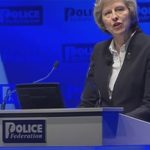


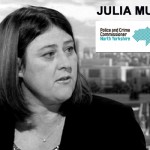
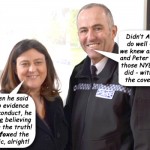

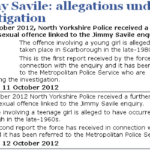
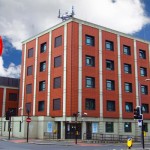

















Comments are closed.